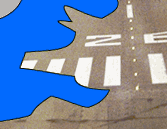 |  |  |
 |  |  |
 |  |  |
| by CHRISTOPHER MONTGOMERY | ||
July 1, 2002Fighting Is Fun Anti-Eristic Argument A few years ago Niall Ferguson made the unexceptionable observation in The Pity of War that Great War soldiers as much as anything fought on, and fought to win, because they enjoyed fighting. This caused some of the more po-faced reviewers of his book to tut-tut – and murmur about, 'what can a civilian academic really know of war, eighty years on?' Well, what Dr Ferguson knew well enough was not to anachronistically apply the values of the senior common room to the Western Front. One thing that has struck me since starting writing this column is the volume of correspondence from retired military folk. And what is instantly – and again what ought to be, like Niall Ferguson's insight above, self-evident – apparent is that these are decent people. Put simply, soldiers, sailors and airmen from Britain and America, whatever we might think of the ends that they have been put to in service of deficient and delinquent foreign policies, are not, on the whole, bad men. They have not, by and large, in the service of empire done atrocious things. The reason to stress this is that we are never going to get anywhere if we keep handing our opponents the open goal that we think the West, and specifically Britain and America, is civilisation's cancer. We have to demonstrate that it is the policies which we object to that are wrong, and not the servants of them. Showing that despite the innate decency and the absence of evil from our side, there's a strong case to be made why we're right really is a much better way of going about things. In fact, by convincingly setting out why we're right and our opponents are wrong, our agreement that our countries are basically benign notwithstanding, surely goes a considerable distance towards demonstrating the strength and self-confidence of our case? In other words, to win this fight, the first and decisive step will come when we stop saying things that the rest of the world simply won't accept as being true. Suspiciously Goldbergian Better even than ranting about the special relationship or the failings of the Conservative party, let us return to my favourite subject: the past. But before we go there, let's just momentarily think about countries like Britain, and America, and Canada, and Australia, and all the other pro-active, all-weather humanitarian bombers out there. Are they currently terrible places to live? slipping inexorably towards being police states? racial and sexual tyrannies the lot of them? I'd say No, and I'd say that with an eye to the past – which is to say, I'd take the question and try to place the answer in an historical context. Thus, Britain, compared to what has gone before, most especially abroad, is not a police state, it bears no relation to being a police state, and anyone who compares her to one has zero idea of what they actually were and are like. This, it strikes me, is not a brave or complex thing to assert. Unfortunately, all too many people who, like us, disagree with the drift of, for instance, Anglo-American foreign policy, would pant, Yes, Yes, Ye-ess to that list of questions from a sentence or two ago. Leaving to one side every other consideration – most notably, trivia such as 'the truth' - the honking great political problem with this is tactical: most people, or voters if you will, just don't get the whole police state thing. Now, we're holding on to what it is that unites us – a certain scepticism about the mutually reinforcing foreign policies that our governments pursue, aren't we? We think that our governments' foreign policies are wrong, or misguided, or ineptly conducted, or foolishly short sighted, or pig ignorant of anything that could be meaningfully construed as being in the national interest. Yet, bureaucracy and democracy being what it is – disposed to ignorance in the latter, thus facilitating the attachment of the former to the carcasses of dead policies – it's difficult, short of climacteric crisis, for sceptics to make headway. So, how are we going to go about making some? The first thing (and I'm going to keep repeating this until someone pays some attention) is that, given the difficulty of our position, we're going to have to stop heaping still more problems in our way. We are, in short, only going to make progress in changing the way people think about the future if we start explaining the past to them more congenially. Cowling Was Right About Everything Don't for a minute think that means we should sign up for some sloppy Churchillian-cum-New Deal-boosterism view of the past. Holding what might by caricatured as British Buchananite views – we shouldn't have declared war on the Hun in 1939; we shouldn't, pace our little break during the Napoleonic wars for example, have kept fighting the Germans to the point of insensibility; and you know the rest of it backwards – is not the problem. The problem lies in our habit of asserting that the policies we pursued as countries, rather than being merely less good, less sensible, and less agreeable to the public, were immoral, insane and undemocratic. This won't wash. To break the stranglehold of the other chap's view of the past – which is invariably at least the rhetorical foundation for their current conduct of policy – we need first to knock down their walls, not scream that their arguments are the embodiment of human wickedness. Then we can start raising up our own structures - but they have to accord with what people are willing to believe. To take an obvious example, National Review Online recently serialised excerpts from Eliot A. Cohen's, Supreme Command: Soldiers, Statesmen, and Leadership in Wartime. Now I've only read what NRO presented, but I do know that Cohen is a very good historian – much better for example than the rather two dimensional Victor Hanson – and these extracts give us the flavour we have come to expect, which is the succulent taste of Churchill: genius. Churchill, of course, was a genius, but what we're interested in is the point that Cohen's understanding of the Great Man is being put to today. And that's, as you would expect given the location of these chapters, to buttress the whole NRO take on the war against terror. Nothing so vulgar as a direct link is made, but we're presented with what the demigod did and really we're all clever enough to draw the appropriate lessons about what should be done now – us being at 'war'. For myself, I will never take seriously a word NRO says about terrorism until someone explains why, oh, bombs in America or Israel are awfully bad things, but a character like this ain't. Anyway, moving on, as they say, let's have a quick dekko at Winston. The Great Man Thesis Eliot Cohen gives us a Churchill who, his flaws alluded to solely in order to magnify his heroic achievements, is still the world historical statesman. His methods and aims combined in blissful synthesis, and, he still has much relevance for us today (why else write a book about him?) The key part of this is 'Churchill - his grasp on disparate theatres'. This is always an attractive quality for historians to be able to locate in the past as it reflects well on their judgements, i.e. they, from the vantage point of the present, can see events in the round, and opine accordingly, so it's extremely useful to have some historical actor whom they can likewise project onto. In contrast to what fans of Churchill such as Eliot Cohen are apt to say, the man most closely involved with him, and with the conduct of the war and the formulation of grand strategy, Field Marshall Lord Alanbrooke, had a different, contemporary view of the Prime Minister's abilities. Like everyone else Alan Brooke thought that Winston Churchill was a genius, and a good man, but as to whether his life represents a unique moral and political fable as to how Western democracies should wage wars, well, think again. Brooke was Chief of the Imperial General Staff (head of the army), and chairman of the chiefs of staff committee for most of the war. His unexpurgated diaries, edited by Alex Danchev, have recently been published and give us a more flesh and blood Churchill. After a combined (i.e. with the US) chiefs of staff in 1943, Brooke sums up for himself the positions the various players took as to the work at hand, the determining of the 'Global Statement of our Strategy'. He ran through his own, King's, Marshall's and so on, and last of all he came to Churchill: and Winston??? Thinks one thing one moment and another at another moment. At times the war my be won by bombing and all must be sacrificed to it. At others it becomes essential for us to bleed ourselves dry on the continent because Russia is doing the same. At others our main effort must be in the Mediterranean, directed against Italy or Balkans alternatively, with sporadic desires to invade Norway . . . but more often than all he wants to carry out ALL operations simultaneously irrespective shortages. Remember this is to say nothing of whether Churchill was fighting the right war, or whether he fought well the war he had ended up fighting, what we're considering is the Icon that people like Prof. Cohen wish to deploy at the head of their present day crusade. To give, as we should, the final word on Churchill to Brooke, writing in September 1943: I wonder whether any historian of the future will ever be able to paint Winston in his true colours. It is a wonderful character – the most marvelous qualities and superhuman genius mixed with an astonishing lack of vision at times, and an impetuosity which if not guided must inevitably bring him into trouble time and time again. Perhaps the most remarkable failing of his is that he can never see a whole strategical problem at once. His gaze always settles on some definite part of the canvas and the rest of the picture is lost. It is difficult to make him realise the influence of one theatre on another . . . This failing is accenuated by the fact that often he does not want to see the whole picture, especially if this wider vision should in any way interfere with the operation he may have temporarily set his heart on. How Ulster Won the War Whether you think that a man like Brooke should chiefly be remembered as the character who successfully manipulated America in pursuit of aims Britain shouldn't have had in a war we should never have started, or as a faithful and able servant of the state, or both, he and men like him where the principle reason why Britain, astonishingly, ended up on the winning side of a ruinous war. Although Alan Brooke spent most of his adolescence in France, his family home, Colebrooke is in what is today Northern Ireland. Most of Britain's successful generals from the second world war have it in common that they all hailed from the same caste – the willingly militaristic Ulster gentry. The most famous of this crowd was Bernard, later Field Marshall Viscount Montgomery, whose family home, New Park, was just over the border in Moville, Co. Donegal. My paternal grandmother, as her contribution to war effort, spent the war, up until her marriage, at New Park – as companion to Maud, the general's mother. Granny did this at the behest of the War Office because her distant relative, Lady Montgomery, was viewed as a threat to the empire as, every time she attempted to get in touch with her son, who loathed her, this enraged him so much that it was felt the progress of the 8th army was set back at least a month. Once victory was in sight, my grandmother went off to get married to another Montgomery, from an entirely different family, who from proposition to wedding service to wartime honeymoon wrapped that up in six weeks (he wanted to get the whole business over and done with before the cricket season started). Establishmentarian Homily All this has been by way of a very roundabout defence of our own past, and our own ancestors – we haven't been monsters, where plenty of others have, and we're not villains today. Until we stop crying wolf, nobody is going to take our entirely justified cries of 'let's leave the EU because of these perfectly reasonable ideas' or 'let's not build military bases in Central Asia' or whatever the issue to hand is, seriously. And they won't need to, for what have we left in the linguistic locker to describe the crimes and follies that might be about to happen, given how so many of us describe the world as it is? For a very long time the Sane Foreign Policy movement has been its own worst enemy – it would be more than a pity if when our cause were in some danger of mattering we, too many of us, ever more determinedly sought ridicule and irrelevance. |
| Text-only printable version of this article Recent Articles by Christopher Montgomery What
Are We Fighting For? Absent
Dangers: Forgotten 'Threats' Gibraltar:
It's Ours, And We're Keeping It Introducing
Ameroscepticism Your
Friends In the West Zimbabwe:
Whose Problem Is It Anyway? Terrorism,
at Home and Abroad Contact Christopher Montgomery Go to the most current column by Christopher Montgomery Sign up to receive Airstrip One by e-mail Christopher
Montgomery is an historian who is currently writing a book on the
historiography of the Suez crisis, and is publisher of ERO.
He recently took some time out to run the Iain Duncan Smith campaign
office, and for a while was working in the private office of the
Leader of the Opposition. A young representative of the diehard
tradition, he believes that Enoch Powell was right on everything
apart from immigration. |
Please Support Antiwar.comSend contributions to: Antiwar.com or
Contribute Via our Secure Server |

